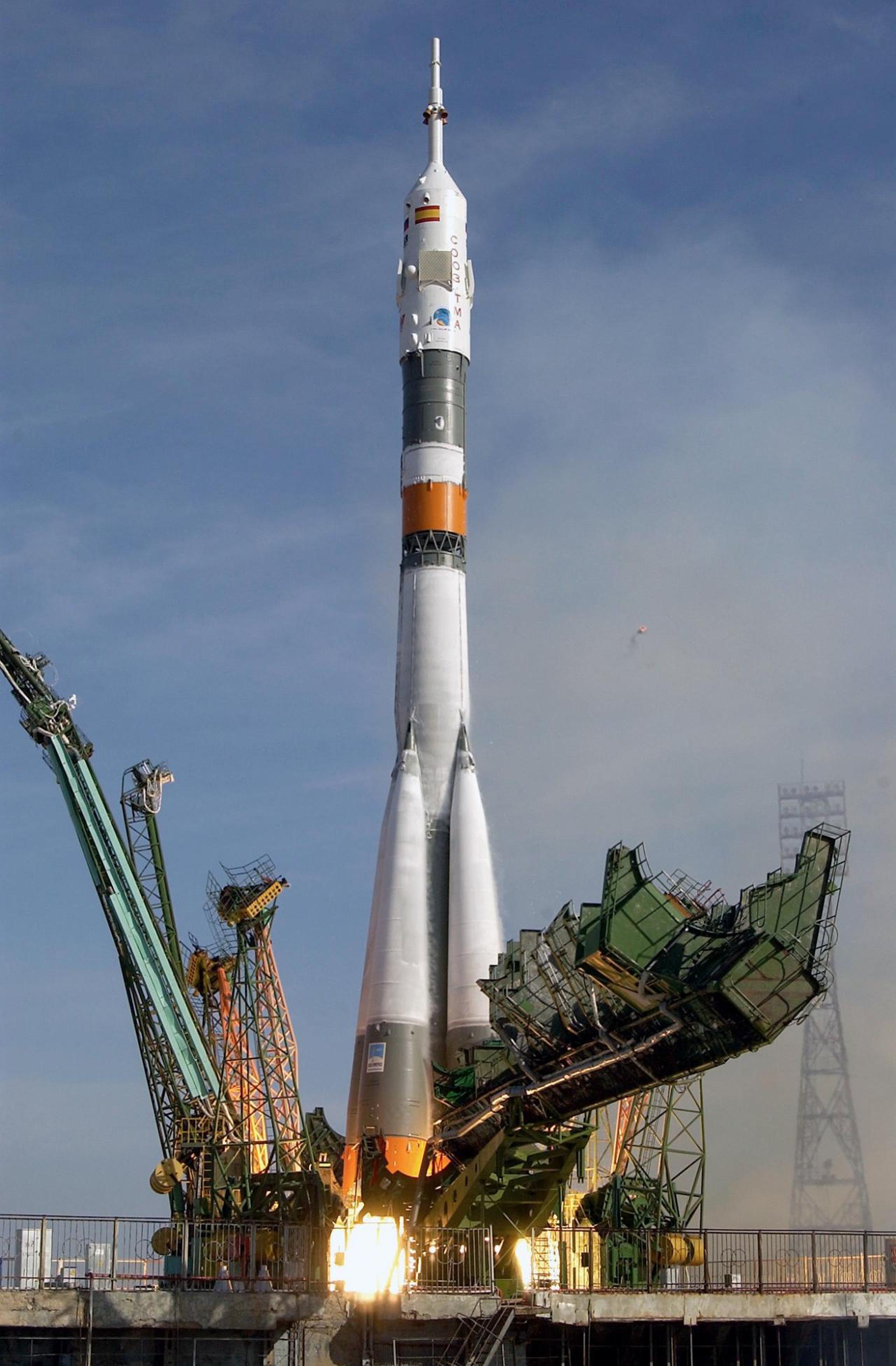Previous Spaceflight Launches
Filter by Agency, Locations or Vehicles
Show All LaunchesZenit-3F | AngoSat-1
Russian Federal Space Agency (ROSCOSMOS) | RussiaBaikonur Cosmodrome, Republic of Kazakhstan
Dec. 26, 2017, 7 p.m.
Status: Launch Successful
Mission:
AngoSat-1 is a geostationary communications satellite operated by Angosat and built by Russian RSC Energia. It is Angola's first communications satellite. Angosat-1 is fitted with C-band and Ku-band transponders and has an operational lifetime of 15 years.
Geostationary Transfer OrbitSoyuz-U | Progress MS-05 (66P)
Russian Federal Space Agency (ROSCOSMOS) | RussiaBaikonur Cosmodrome, Republic of Kazakhstan
Feb. 22, 2017, 5:58 a.m.
Soyuz-U | Progress MS-04 (65P)
Russian Federal Space Agency (ROSCOSMOS) | RussiaBaikonur Cosmodrome, Republic of Kazakhstan
Dec. 1, 2016, 2:51 p.m.
Soyuz-U | Progress MS-03 (64P)
Russian Federal Space Agency (ROSCOSMOS) | RussiaBaikonur Cosmodrome, Republic of Kazakhstan
July 16, 2016, 9:41 p.m.
Zenit-3F | Elektro-L No.2
Russian Federal Space Agency (ROSCOSMOS) | RussiaBaikonur Cosmodrome, Republic of Kazakhstan
Dec. 11, 2015, 1:45 p.m.
Status: Launch Successful
Mission:
This is the second in a new generation series of meteorological satellites developed by the Russian Federal Space Agency. The satellite will operate in geostationary orbit and be primarily used for weather forecasting as well as monitoring the oceans and climate change. With a weight of ~1600kg the satellite has an expected lifespan of 10 years.
Geostationary Transfer OrbitSoyuz-U | Progress M-29M (61P)
Russian Federal Space Agency (ROSCOSMOS) | RussiaBaikonur Cosmodrome, Republic of Kazakhstan
Oct. 1, 2015, 4:49 p.m.
Soyuz U | Progress M-28M (60P)
Russian Federal Space Agency (ROSCOSMOS) | RussiaBaikonur Cosmodrome, Republic of Kazakhstan
July 3, 2015, 4:55 a.m.
Soyuz-U | Progress M-26M
Russian Federal Space Agency (ROSCOSMOS) | RussiaBaikonur Cosmodrome, Republic of Kazakhstan
Feb. 17, 2015, 11 a.m.
Soyuz-U | Progress M-24M (56P)
Russian Federal Space Agency (ROSCOSMOS) | RussiaBaikonur Cosmodrome, Republic of Kazakhstan
July 23, 2014, 9:44 p.m.
Soyuz-U | EgyptSat 2 / ايجيبت سات
Russian Federal Space Agency (ROSCOSMOS) | RussiaBaikonur Cosmodrome, Republic of Kazakhstan
April 16, 2014, 4:20 p.m.



